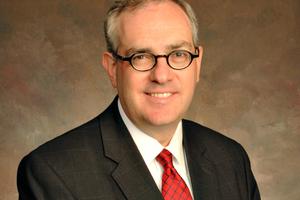Fostering Cooperation and Peace With Muslims
Francis Meets With Crown Prince of Abu Dhabi
Pope Francis met at the Vatican on Sept. 15 with the crown prince of Abu Dhabi, Sheikh Mohamed bin Zayed Al Nahyan. They discussed ways of strengthening bilateral relations and promoting peace. Accompanied by ministers and other officials, it was the highest-level official delegation from the United Arab Emirates ever to visit the Vatican and comes at a time when the region and the Holy See are eager to emphasize “constructive interreligious dialogue.”
The UAE, like a number of Gulf states, is hoping Pope Francis will visit the region. Leaders have invited him in June to make a trip to the country. If he were to accept the invitation, he would become the first pope to ever set foot on the Arabian Peninsula.
A UAE government official told the Register Sept. 15 that although nothing was mentioned about a visit in any of the official statements, “that doesn’t mean it wasn’t discussed.” The Vatican, however, is currently remaining quiet about the possibility: It hasn’t ruled it out, but neither has it stated any concrete plans for such a visit.
Sheikh Mohamed’s interest is in increasing cooperation with the Vatican and exchanging views on issues of mutual concern — points he made clear to the Pope, according to Emirates media. He also expressed “great appreciation for the Pope’s noble sentiments and generous reception,” as well as for the Pope’s role in “working towards peace, love and solidarity between the peoples of the world.”
The Pope, for his part, congratulated the UAE for its “ongoing humanitarian and philanthropic initiatives focused on education and health care and its role in promoting and supporting sustainable development around the world, through the adoption and deploying of sustainable sources of energy and by supporting countries and communities in need.” He also expressed confidence that the meeting “will enhance joint collaboration that will benefit humanity and uphold the values and principles of interfaith coexistence, tolerance, peace and the empowerment of social and sustainable development.”
A papal presence in the region would be a boost to the Gulf’s very large immigrant population, many of whom are Catholics from India and the Philippines. Often they are employed as domestic helpers or construction workers and work in poor conditions. According to UAE government figures, approximately 900,000 Christians of various denominations live in the UAE. That’s 9% of the population; 70-75% of them are believed to be Catholics.
In recent times and as a reflection of the growing religious tolerance in the region, Gulf leaders have almost competed with each other to see who can show the most religious tolerance. In 2008, Bahrain’s King Hamad invited Benedict XVI to his country. He again returned to the Vatican in 2014, in order to meet Pope Francis.
Christianity has been present in the southern Arabian Gulf since the sixth century, followed by Islam in the year 630. But as Islam took root in southeastern Arabia, the local population ceased to be Christian, and the UAE’s connection with Christianity has been dependent on Christian immigrants ever since, often arriving due to trade links and oil.
Large Catholic parishes and a local clergy that struggles to cope with the numbers are the result of few churches. The UAE’s rulers have taken some steps to be accommodating: In 2002, a Catholic church was built on a plot of land donated by the ruler of Fujairah, Sheikh Hamad bin Mohammed Al Sharqi. And in 2015, a new Catholic church, St. Paul’s, was inaugurated in the Musaffah area of Abu Dhabi on land donated by Sheikh Mohamed.
Another factor attractive to the Vatican is how the UAE in particular has been working to eradicate extremist, Islamist violence. The government has set up “Hedayah,” an Abu Dhabi-based center for countering violent extremism, which, among other things, is focusing on the important role of education and promoting the “positive role of families, women, culture and religious moderation.”
The UAE has also been engaged in the Sawab Center, launched jointly with the United States, which is the “first-ever multinational online messaging and engagement program in support of the Global Coalition Against Daesh (ISIS).” In addition, the Gulf state has helped launch “The Forum for Promoting Peace in Muslim Societies,” which aims to bring together leading scholars to “promote an accurate understanding of the message of Islam and the real nature of the tolerance that lies at its heart.”
Given the ever-growing Islamist threat, the UAE’s promotion of religious tolerance, the challenges of immigration in the region and the poor working conditions many people suffer there in the face of extreme wealth inequality, a visit by Pope Francis seems, on paper at least, possible at some point.
- Keywords:
- Oct. 2-15, 2016
















